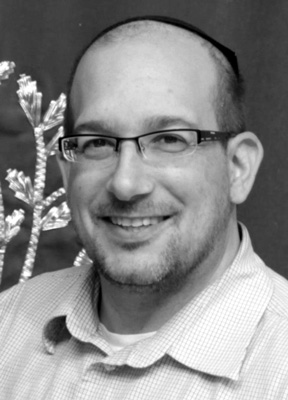The Hard Kind of Kindness
Permanent link All Posts
“Looking back, what do you regret?”
That was the central question of George Saunders’ commencement speech to graduates of Syracuse University, which I was recently directed to through an article in The New York Times. After listing a few things that might be regrettable in his past, Saunders remembered the way several of his classmates in 7th grade dealt with a new girl in their school and neighborhood. He says that they, “mostly ignored and occasionally teased” this girl. Then, at some point, the girl and her family moved out of the neighborhood and life went on.
Saunders then remarked, according to the article:
Now, why do I regret that? Why, forty-two years later, am I still thinking about it? Relative to most of the other kids, I was actually pretty nice to her. I never said an unkind word to her. In fact, I sometimes even (mildly) defended her.
But still. It bothers me.
So here’s something I know to be true, although it’s a little corny, and I don’t quite know what to do with it:
What I regret most in my life are failures of kindness.
Those moments when another human being was there, in front of me, suffering, and I responded…sensibly. Reservedly. Mildly.
Or, to look at it from the other end of the telescope: Who, in your life, do you remember most fondly, with the most undeniable feelings of warmth? Those who were kindest to you, I bet.
Ok, I get the point: kindness rules and apathy drools. I am no stranger to kindness and/or the Hebrew version, chesed. It is one of the calling cards of our religion (and kindness is actually one of the three things that the world rests upon according to the Talmud). Until I read what Saunders wrote about the missed opportunities as “failures of kindness,” however, I never really gave the idea much thought. As I think about it now, I am usually so concerned with doing an act of kindness that I become blind to other opportunities.
I think there are two types of kindness: global kindness and local kindness.
Getting involved with a national or international cause is an amazing thing. Donating to a relief fund is something that is a very tangible way to help others. To be involved in a cause connected to any charity or organization is a wonderful way to give something of yourself and expand your heart. These are examples of global kindness. We often gravitate to them simply because we repeatedly hear about them and the cause resonated with us.
Then, there’s the local kindness. This type of kindness isn’t always publicly broadcasted. It could be giving some spare change to someone in need or volunteering to tutor a kid who needs help in school. It could be opening the door for a stranger, greeting someone, or even asking a friend how they are doing. These are the “easy” acts of local kindness. Easy, I say, because it’s sort of a one-time act or kindness to a stranger. Odds are that you will rarely ever see that person again.
This kindness can be more difficult because it involves interacting with family and friends. Being patient with a cashier at the grocery store can be easy; choosing to be patient with someone in your family can be hard. It requires us to be mindful of our relationships and how we act around those that matter most to us.
For me, my “failures of kindness” consist of a global and a local failure. I feel fortunate to live in a Jewish community (West Rogers Park) that is full of kindness. However, it’s very easy for me to forget that there are many other neighborhoods and communities in the greater Chicago area, as well. So, I need to find something “global” that can connect me to the greater community and show me the “bigger” picture. Simply put, I need to call the JUF. I am sure I can find something from helping at a food bank to tutoring. Locally, I will focus on my wife and three kids. There are times when I catch myself pointing out the negative things people in my family do. I’m not proud of it, but it does happen. For the past three weeks I have consciously been very careful to point out the positive things that my kids do – and we are all the better for it.
In the liner notes for the last studio album from punk rockers Hüsker Dü, there’s a quote I find particular meaningful: “Revolution begins at home, most preferably at the bathroom mirror.” That sort of says it all, for me. If you want to change and not have failure of kindness, but don’t know where to do start, then check the mirror.



.jpg)



